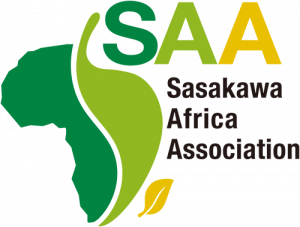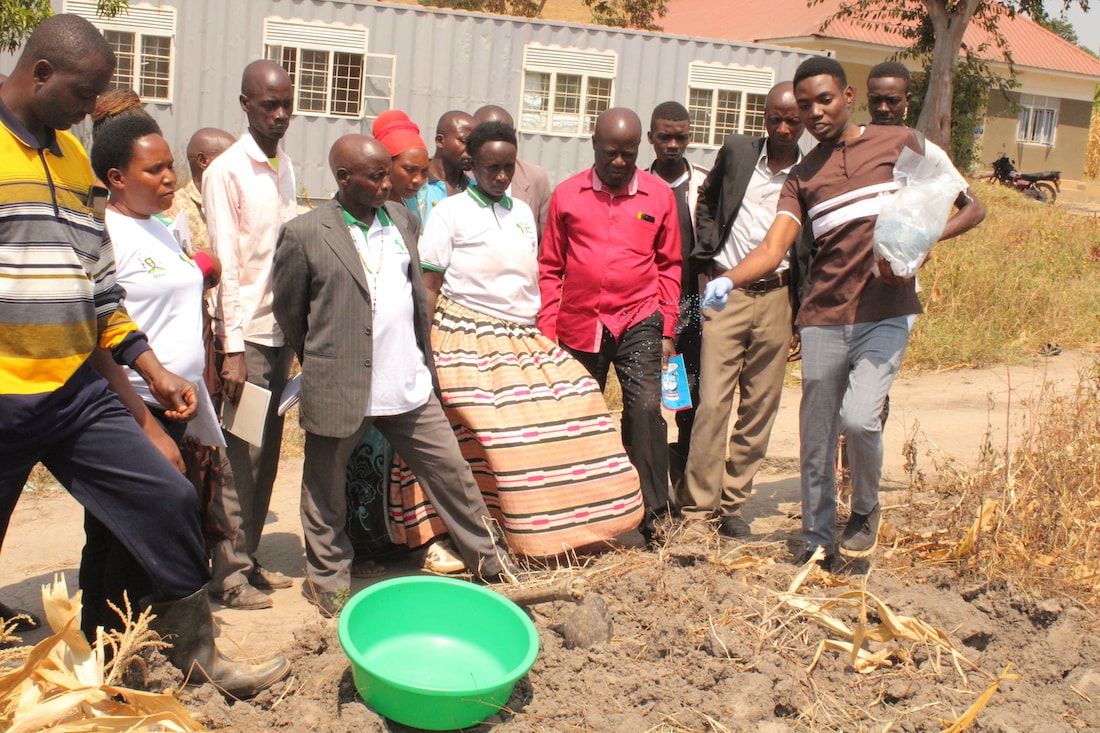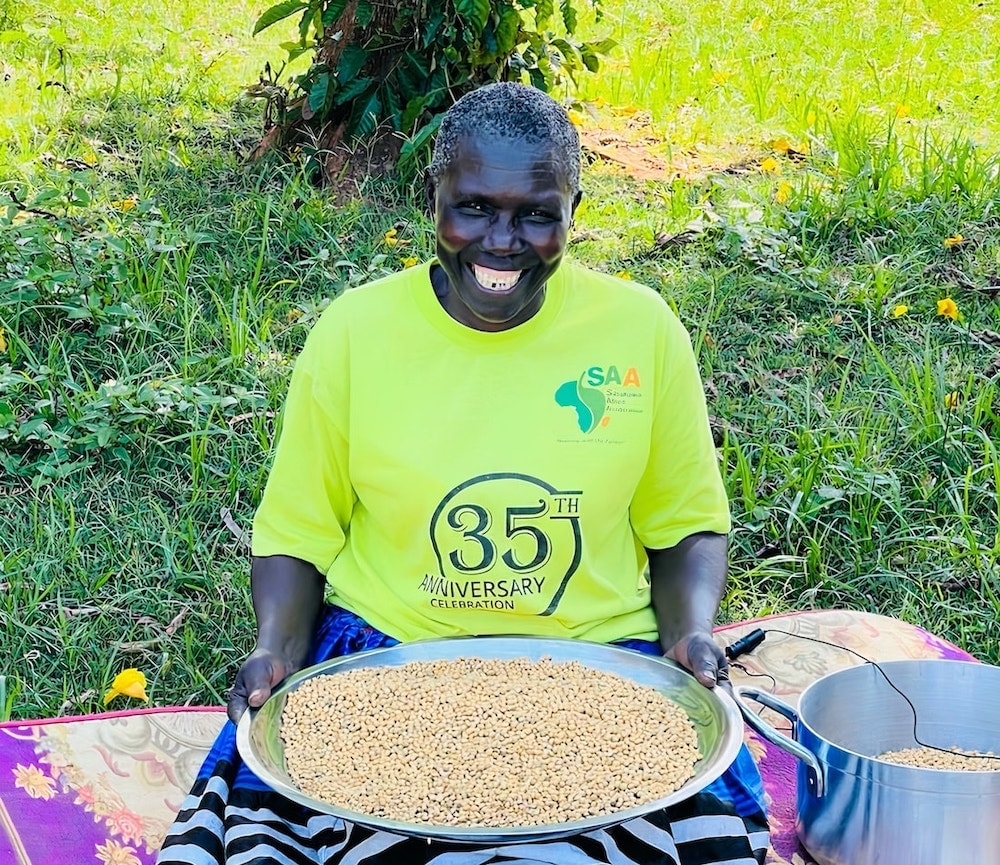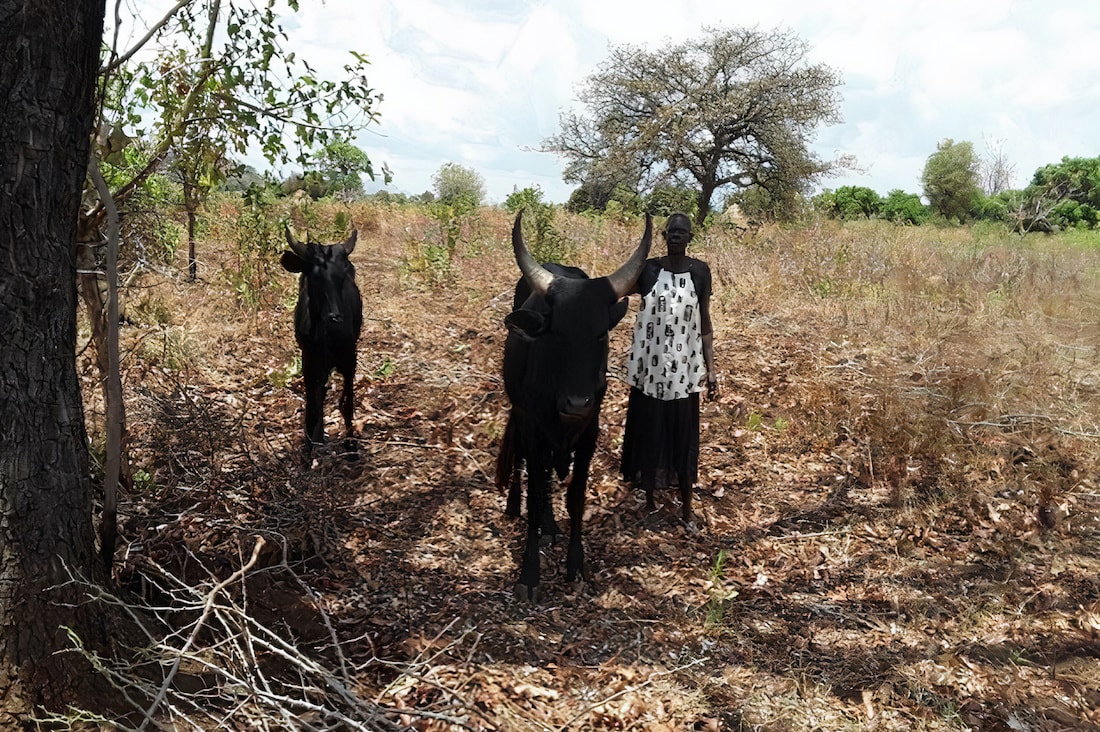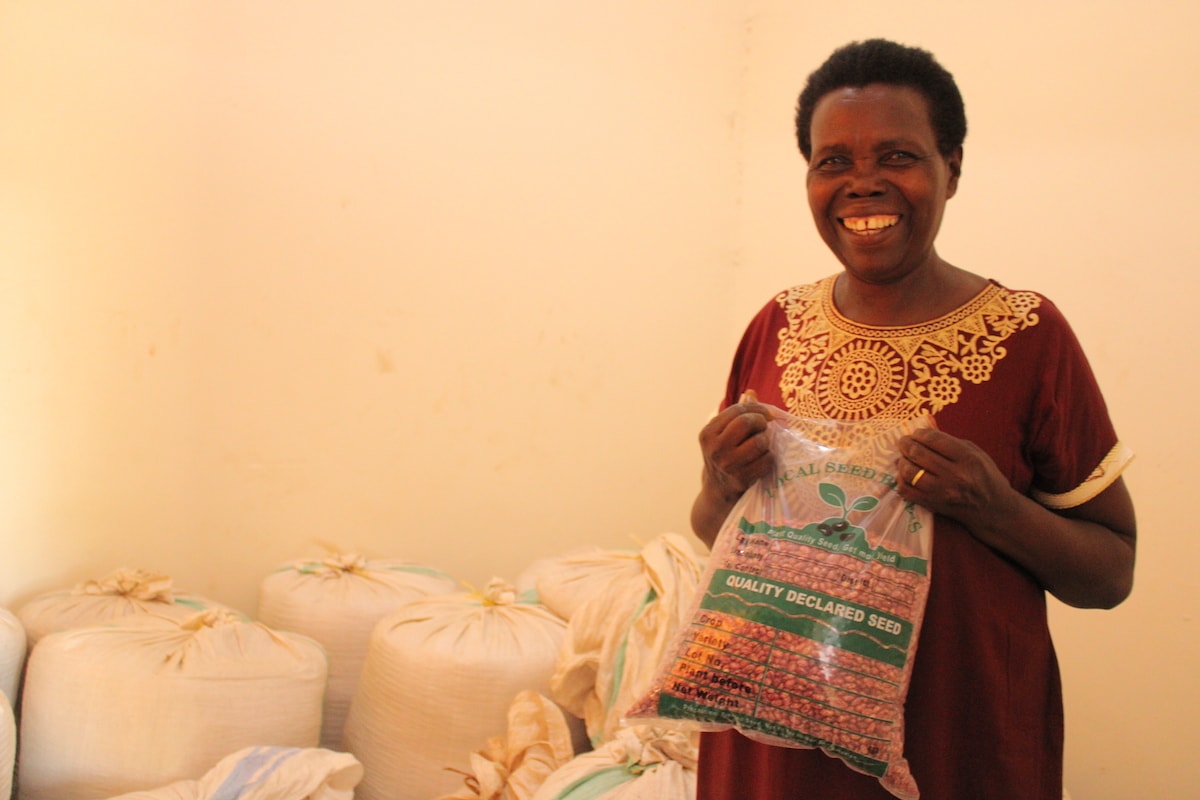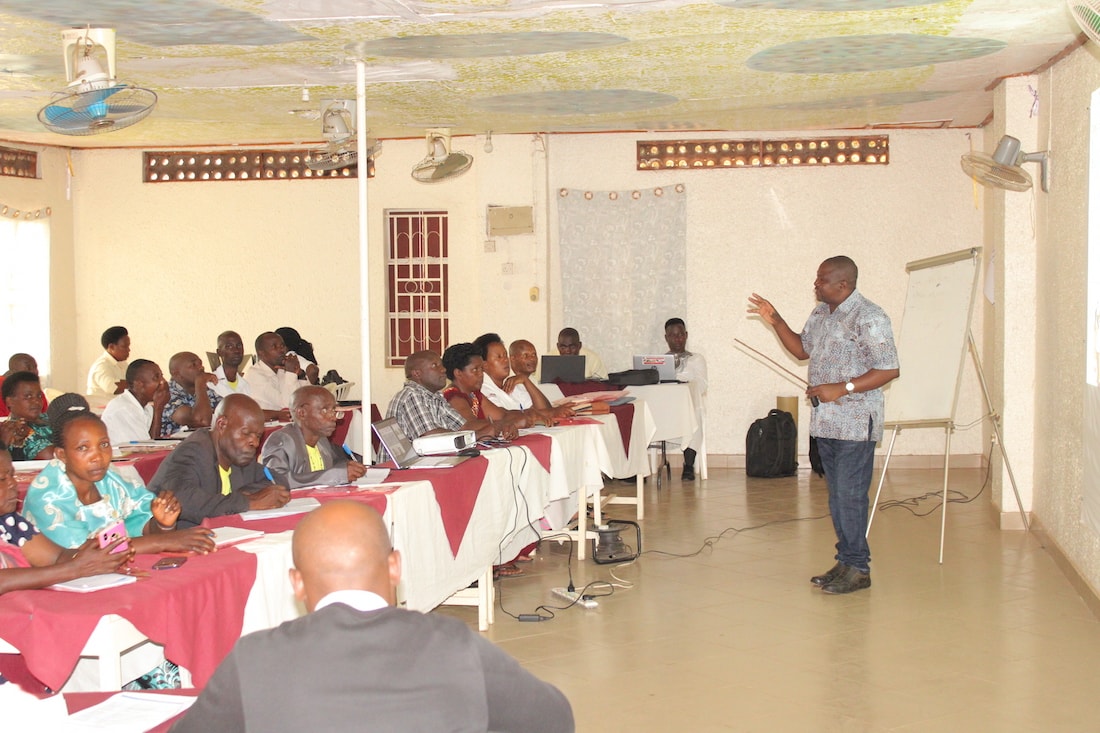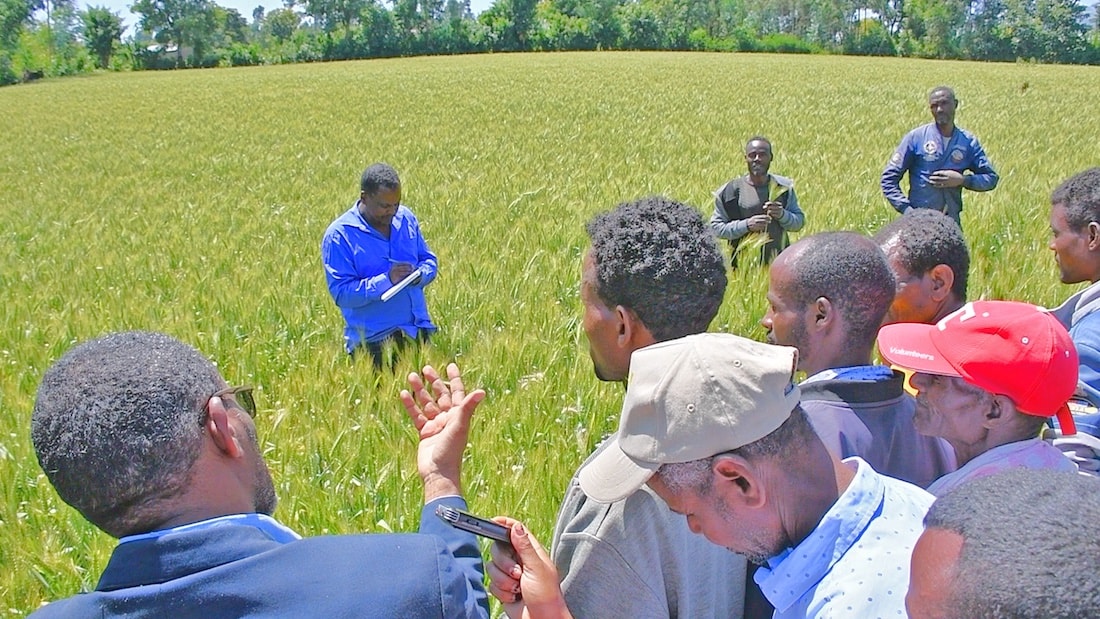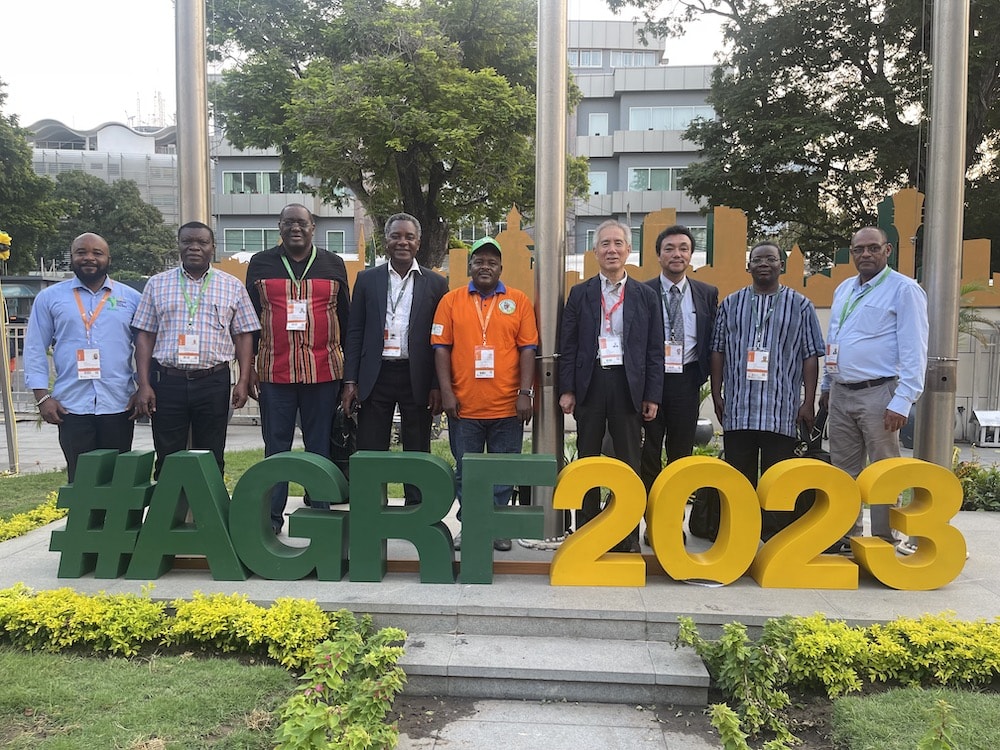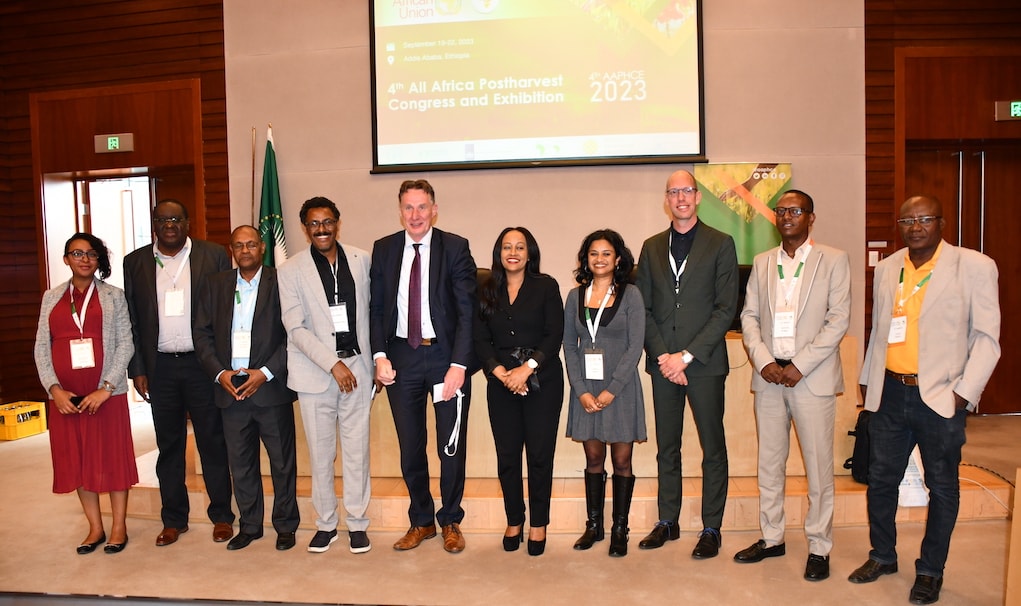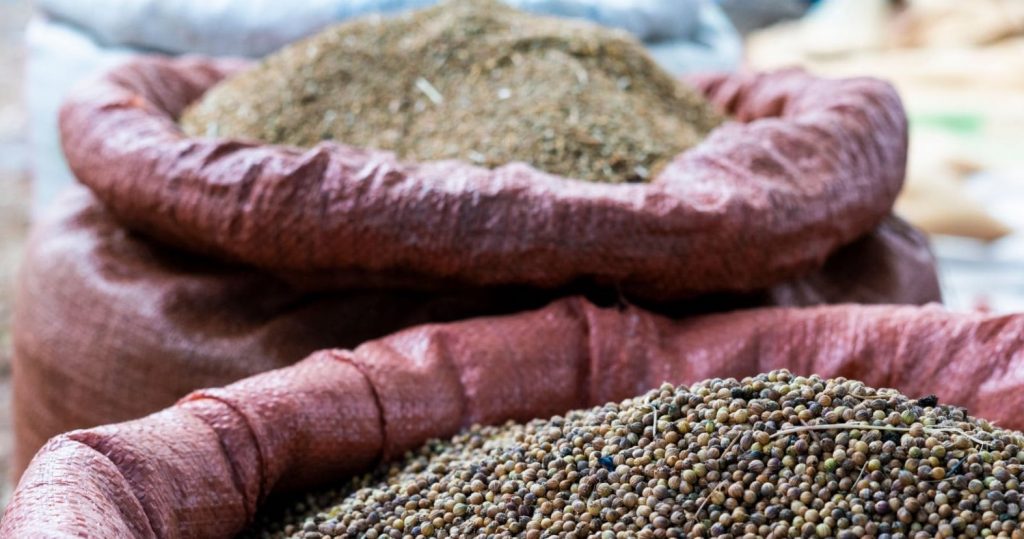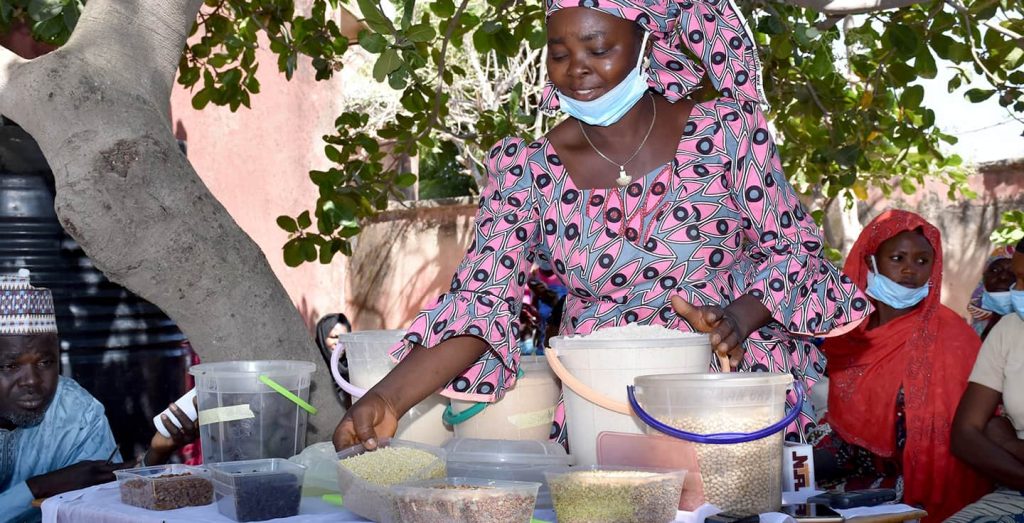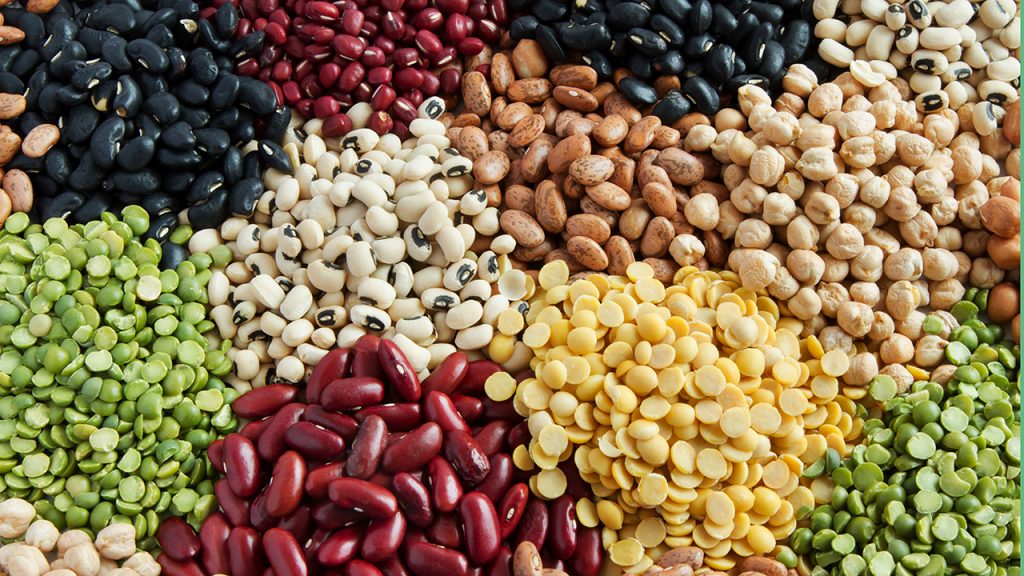Focus on Uganda
September 2023
Remarks from the Country Director
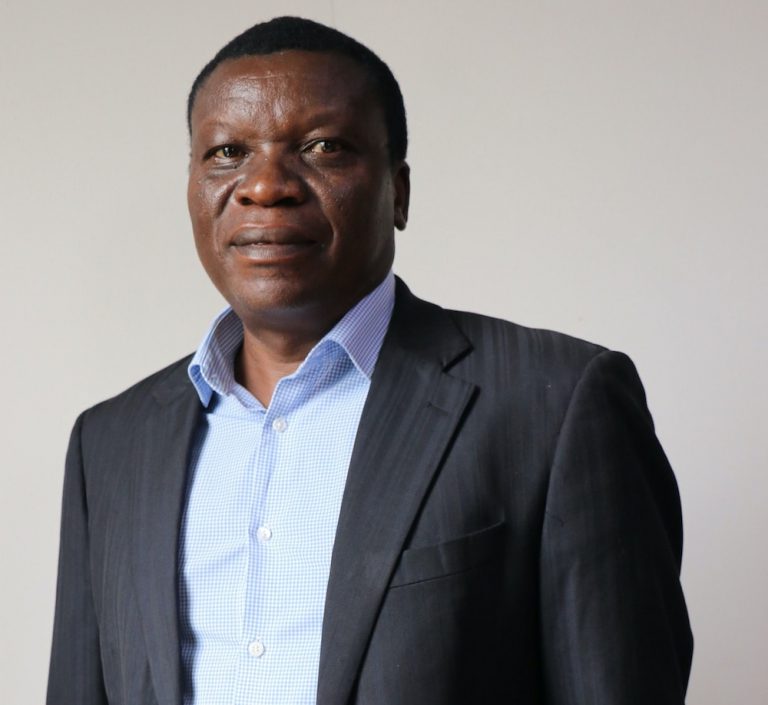
Remarks from the Country Director
SAA remains dedicated to fostering Uganda’s Agricultural transformation
Dear readers,
It brings me great joy to introduce this special edition of our newsletter, which highlights the remarkable progress of SAA’s efforts in Uganda.
Our activities focus on building the capacity of farmers and extension personnel across districts, championing Regenerative Agricultural (RA) practices that restore soil fertility and biodiversity within our farming ecosystems. In line with our mantra “Walking with the Farmer,” SAA Uganda works closely with farmers through public and private extension systems.
In the realm of nutrition-sensitive agriculture, we prioritize the cultivation of nutrient-dense crops to enhance dietary diversity and combat malnutrition in Uganda. We’re proud to offer training in food safety, quality, agro-processing, and marketing, all aimed at ensuring access to nutritious food, promoting health, and increasing the incomes of smallholder farmers and other value-chain actors.
Our Market-oriented Agriculture initiatives are designed to enhance value chains, facilitate market access, and empower farmers to participate in profitable agricultural enterprises, thus spurring entrepreneurship and economic prosperity.
A notable accomplishment we are particularly proud of is the One Stop Centre Association (OSCA) scheme. This community-based organization connects individuals to essential services, minimizing transaction costs and enhancing entrepreneurial skills. It strengthens the institutional framework, ensuring vital services are accessible and affordable. We are delighted to announce the ongoing establishment of two more OSCAs in the Kole and Napak districts, made possible by the invaluable support from the Ministry of Foreign Affairs Japan (MOFA).
The progress and transformative changes we have observed in the communities we serve are testaments of the dedication of our team, the trust of our partners, the generosity of our donors, and the unwavering commitment of our farmers and other value chain actors to transform food systems in Uganda. This edition celebrates our success stories, highlighting the tangible benefits and profound impact of SAA’s interventions.
I wish to extend my heartfelt gratitude to all our stakeholders, including our farmers, local communities, government agencies, and esteemed partners, for their relentless dedication and unwavering support.
Together, we remain committed to forging resilient and sustainable food systems, pivotal for Uganda’s growth and prosperity.
David Wozemba
SAA Uganda Country Director
Voices from the Field
Voices from the Field
SAA promotes Aflasafe in tackling aflatoxin contamination
From 25th to 28th July 2023, the SAA team visited the districts of Rakai and Isingiro to promote the use of Aflasafe, a biocontrol product by the International Institute of Tropical Agriculture (IITA) in the control of aflatoxin Contamination, a persistent issue in Uganda, affecting both adults and children.
Aflasafe contains non-toxic native fungi that can outcompete aflatoxin-producing strains in the field. It has been successful in Gambia, Kenya, and Nigeria, covering 315,000 hectares and meeting regulatory requirements.
SAA collaborates with IITA to train farmers and extension agents on Aflasafe application, emphasizing proper soil surface placement. SAA also advocates for Regenerative Agriculture practices, which, when combined with Aflasafe, improve soil health and biodiversity.



Voices from the Field
Voices from the Field
After setbacks to abundance: Kole farmer finds success in soybean
Esther Apio, a 40-year-old farmer from Kole District, Alito Sub- County, faced persistent losses in her poultry farming for years, driving her to shift towards soybean farming, which seemed promising as she could harvest in six months. However, prolonged drought stress caused her surviving bean pods to shatter, leading to grain waste and loss of income.
“After years of struggling with poultry farming, shattered pods and wasted grains left me disheartened,” she lamented.
Her life transformed when a friend introduced her to Sasakawa Africa Association’s (SAA) Regenerative Agricultural Program for Tomorrow, which champions Regenerative Agriculture (RA) technologies, especially in the soybean value chain. From the program supported by The Nippon Foundation, Esther and her cohort learnt about crop diversification, drought-tolerance, early-maturing, disease/pest-resistant soybean varieties, and other regenerative agricultural practices. This new knowledge transformed her life.
In the first season of 2023, she cultivated the recommended improved soybean varieties such as MAKSOY 6N and 3N. By closely monitoring weather patterns and following SAA’s guidance on timely planting and weeding, coupled with integrated RA practices, such as judicious use of fertilizers, she managed to reap 6,720kgs of soybean from her 8-acre farm. This yielded her UGX 10,752,000 in sales allowed her to comfortably pay children’s tuition fees and set up an agricultural input shop at the Anekapiri market in the Alito town council.
“With Regenerative Agriculture practices, soybean farming has proven to be a profitable business,” she said.
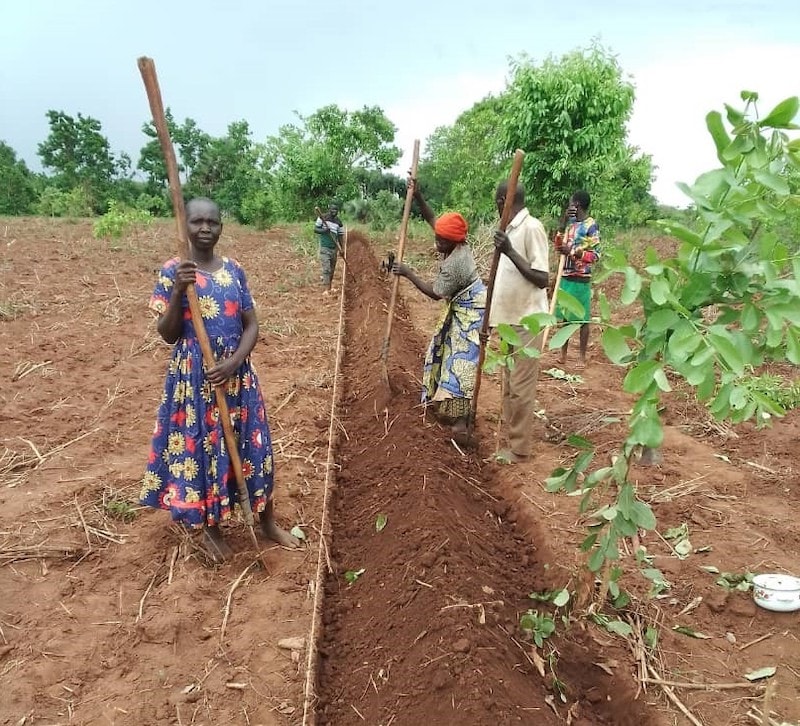
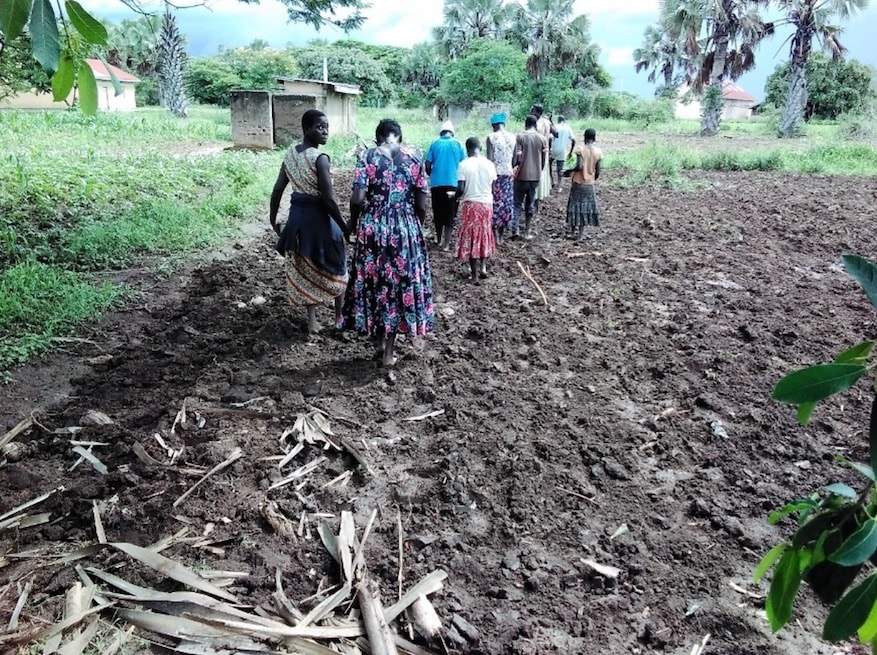
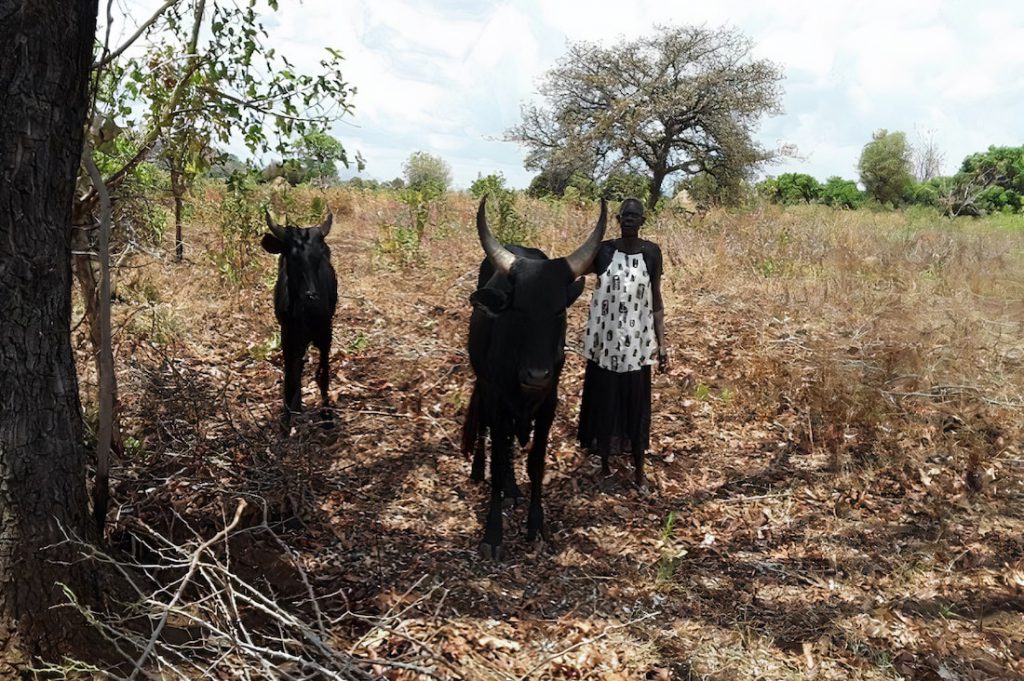
Voices from the Field
Voices from the Field
Collective marketing training boost farmer’s savings
In 2014, Apolot Christine’s savings at a local cooperative were a paltry 120,000UGX (USD 32), but by the end of 2022, she had banked UGX 1,740,000 (USD 464).
Her rapid income growth was spurred by training provided by the Sasakawa Africa Association (SAA) under its Agricultural Market Support (AMS) project, supported by the World Food Programme (WFP). She was trained to view farming as a viable business, with the essentials of financial literacy and collective marketing coming in handy to transform her operations.
“After the SAA training, I joined the Abim West Farmers Network, which opened avenues I had never envisioned,” she said.
In 2021, she bulk-sold 616kg of maize to the WFP’s HomeGrown School Feeding Programme, generating a substantial UGX 800,000, (USD 214) that boosted her savings to UGX 1,370,000 (USD 367).
By diversifying her income sources, such as selling value-added products like posho, and bread in the local markets, she was able to reinvest her profits into more shares in her Saving and Loan Association (SLA).
As at the end of 2022, her savings had grown nearly 1,347% compared to 2014, allowing her to diversify her investments through the purchase of two plowing bulls, several picks, and chicken. Christine’s journey continues to unfold, demonstrating the power of collective action and the importance of saving.
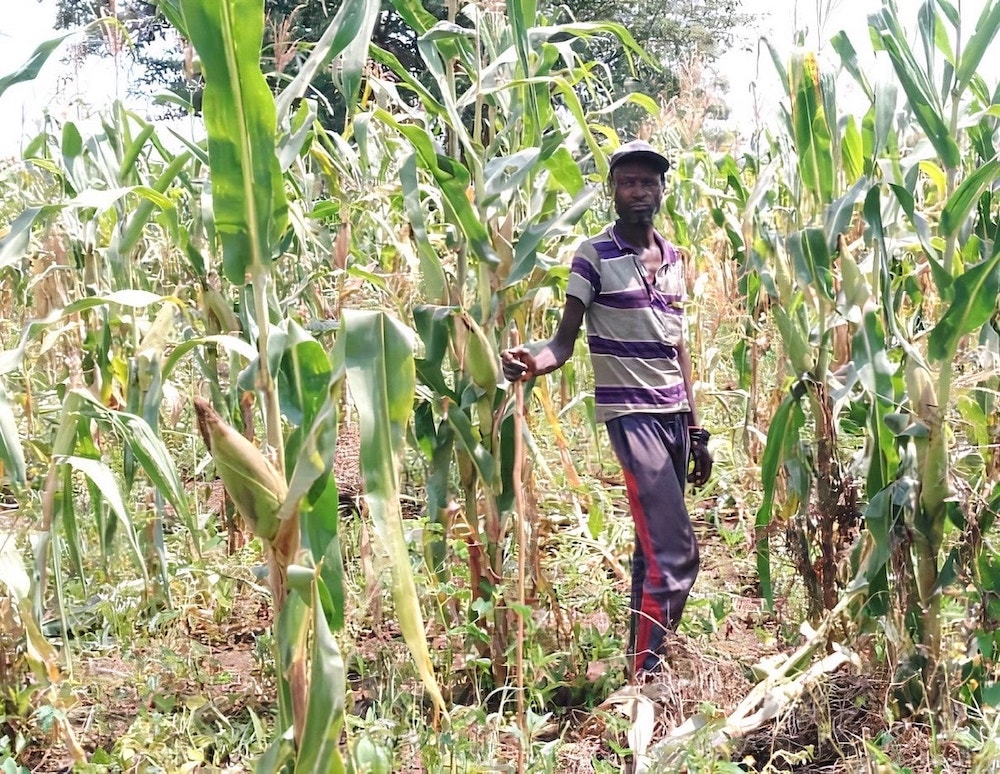
Voices from the Field
Voices from the Field
Farmer’s life transformed through training on collective marketing
Just three years ago, Korobe Annaniah, was a struggling farmer, worn down with loans, school fees for his children and many other recurring expenses. As a young man, he had envisioned life, at the age of 57, full of wealth and tranquility, but his farming enterprise kept failing him, with meagre harvests each year and even lower sales.
And just as he was about to give up, in 2020, he joined the Agriculture Market Support (AMS) project implemented by the Sasakawa Africa Association (SAA), backed by the World Food Programme (WFP). He was trained in good agronomic practices, post-harvest handling practices, collective bulking, and commodity marketing, aspects of agribusiness that transformed his life.
Embracing these skills, Korobe collaborated with fellow farmers to collectively offer their produce to the NADIFA store, a satellite collection point with a fair price for their produce. In his first year after training, Korobe’s 55 bags of produce sold him an impressive UGX 7,200,000 (USD 1926.22), a figure that was beyond his wildest imagination.
“The knowledge I gained on post-harvest management, and collective marketing has been a game-changer for me,” he said.
This amount allowed him to clear a UGX 1,300,000 loan he had secured from the Savings and Loan Association, and which he was struggling to pay. He also spent UGX 930,000 in clearing tuition fee balances for his two children, and UGX 1,750,000 on household expenses.
He spared UGX 3,200,000 for re-investment in his farming work, expanding his land under cultivation to 32 acres, comprising 23 acres of maize, 4 acres of sorghum, and 5 acres of beans. Using organic manure, he has been able to keep his production costs low, and he expects his output to continually increase.
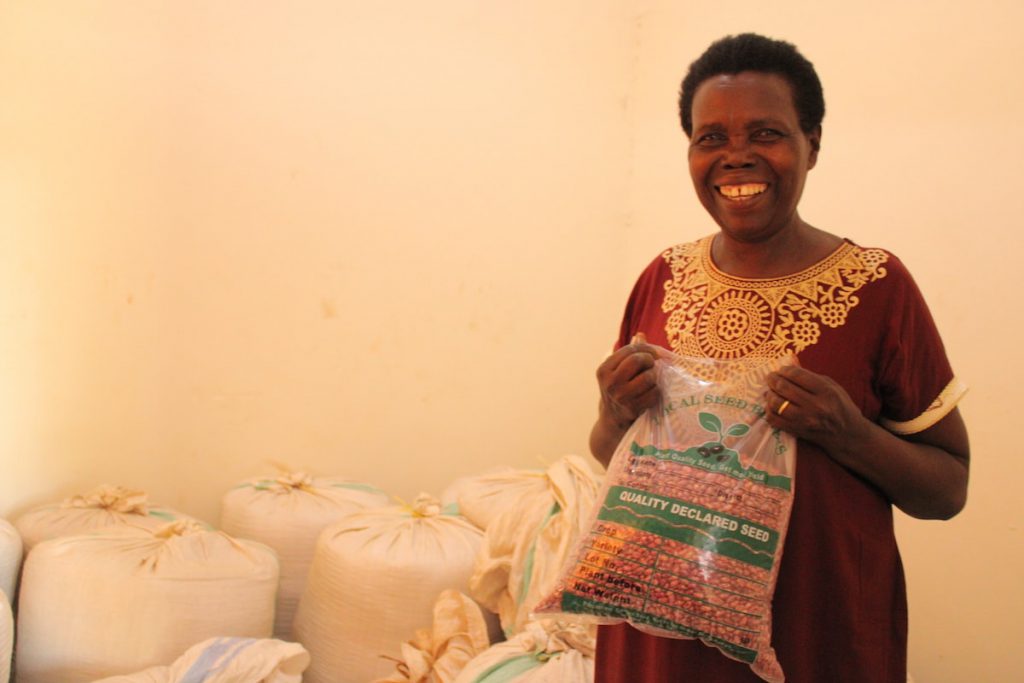
Voices from the FIeld
Voices from the FIeld
Iron-rich beans the key to Ugandan farmer’s success
“I’m happy that I did not give up on growing iron-rich beans because they have a high demand from local markets and people, due to their nutritional benefits, particularly for children and pregnant women.”
These are the words of Joy Kansiime, a 48-year-old Ugandan farmer, who specializes in iron-rich beans (IRB), a crop she had cultivated for years, but only found greater success in after training by the Sasakawa Africa Association (SAA). Early 2022, she harvested 500kgs of IRB, all of which was sold within her village and neighboring communities at UGX 5000 (USD 1.34) per kilogram.
“My beans are sought after for their quality and nutritional richness,” she said.
Her second harvest, early this year, saw her get 700 kg of produce, out of which she has already sold 600 kgs, mainly through the Kitura Abamwe Group, which she joined in 2018. Her increasing income has allowed her to clear outstanding debts, support her children’s education, and provide nourishing meals to her household.
Indeed, Ms. Kansiime’s venture has been transformative for her community, as it brought the nutrient-rich beans closer to her people, paving the way for healthier lives and a brighter future for the communities.
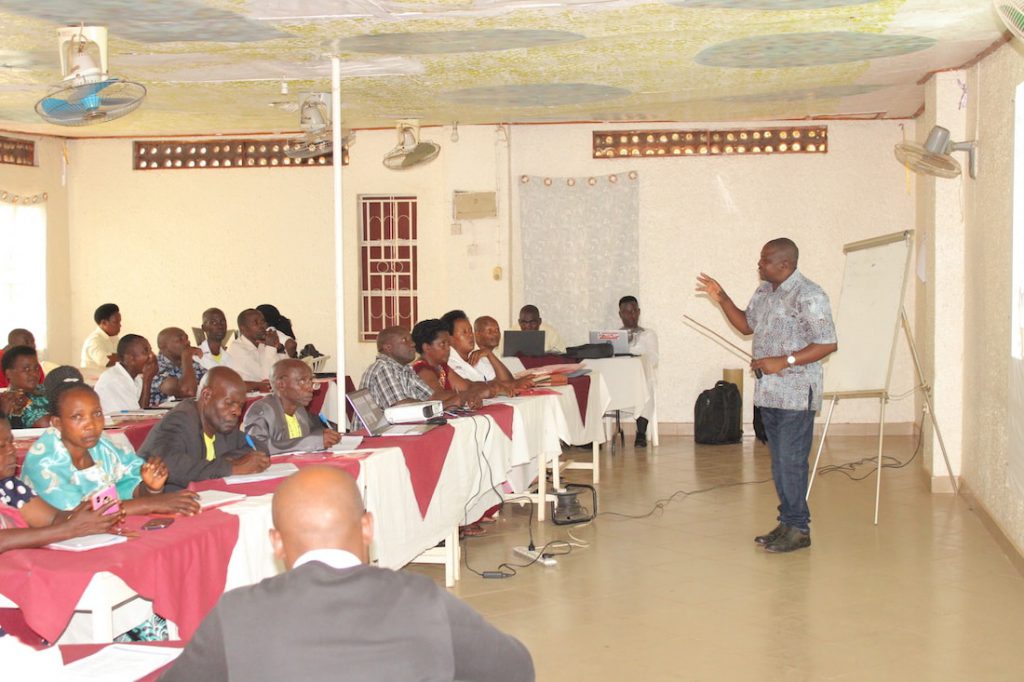
Activities
Activities
SAA Empowers Extension Workers to Transform Uganda’s Agricultural Future
For three exciting days, from June 21 to June 23, 2023, 111 extension workers, including 34 women, gathered at Makerere University’s School of Agricultural Sciences for intensive training on ethics, planning, communication, conflict management, and inclusivity.
The participants included government field extension workers and community-based facilitators (CBFs) from the northern, central, and southwestern parts of Uganda. The training aimed to equip the agents with critical skills for community engagement, such as farmer mobilization, communication facilitation, and report production.
This focus on areas beyond direct agronomic practices is crucial, as it enables extension workers to effectively bridge the gap between technical knowledge and its practical application within diverse communities, fostering trust and collaboration. It underscores the importance of a holistic approach in agricultural extension services, ensuring the harmonious integration of technical know-how with essential interpersonal and organizational skills.
Role plays and group activities took the trainees from the lecture halls to the fields in a fusion of theory and practice that honed their skills in real-world scenarios. At the end of it all, the participants were awarded certificates in the presence of Assistant commissioners from the Ministry of Agriculture, Animal Industry, and Fisheries to symbolize their commitment to excellence.


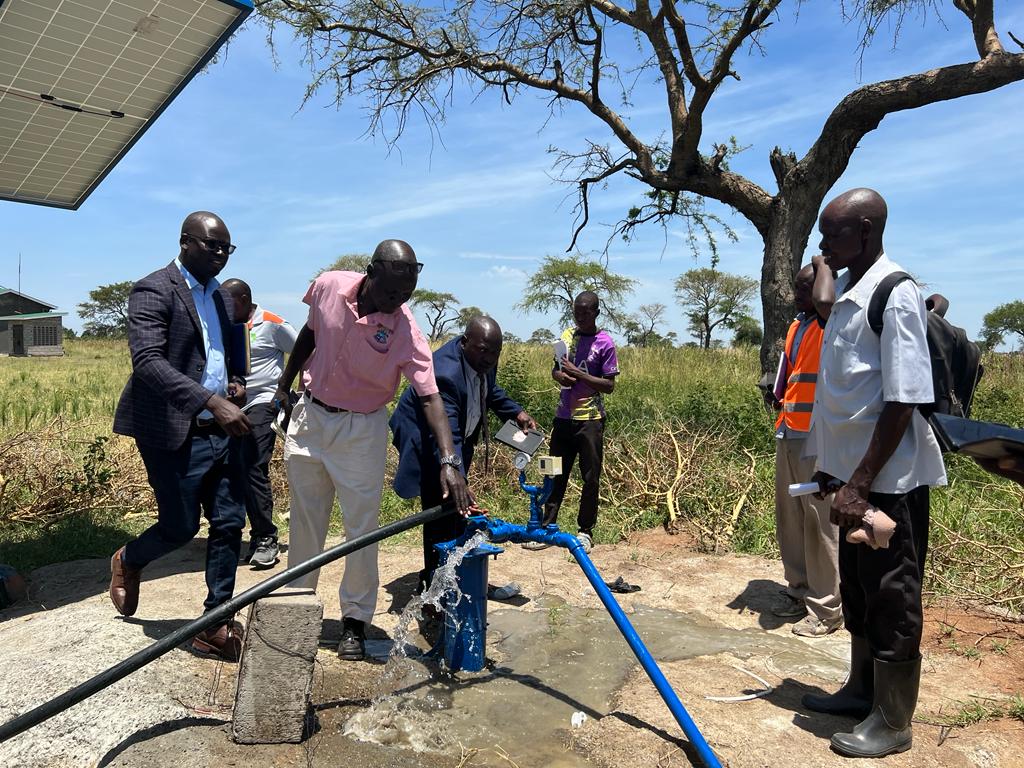
Activities
Activities
Apeitolim OSCA receives approval to proceed with further development
In August 2023, Napak district officials visited one of the SAA’s project sites supported by WFP and Japanese Ministry of Foreign Affairs in the Apetolim subcounty of Uganda. The project is one of two One Stop Center Associations (OSCAs) – in Kole and Napak districts – aimed at revitalizing and digitalizing agricultural cooperatives. The centers will be equipped with storage units, offices, computers, irrigation facilities, and maize mills.
The visit ensured construction quality, emphasizing local empowerment through the ‘SHEP’ approach for OSCA sustainability. District officials, led by the Production and Marketing Officer, Simon Peter Londungokol, expressed optimism about the facility’s impact, while emphasizing their commitment to quality, safety standards, training, and market support. Mr. Londungokol also pledged the government’s support in the acquisition of equipment and machinery.


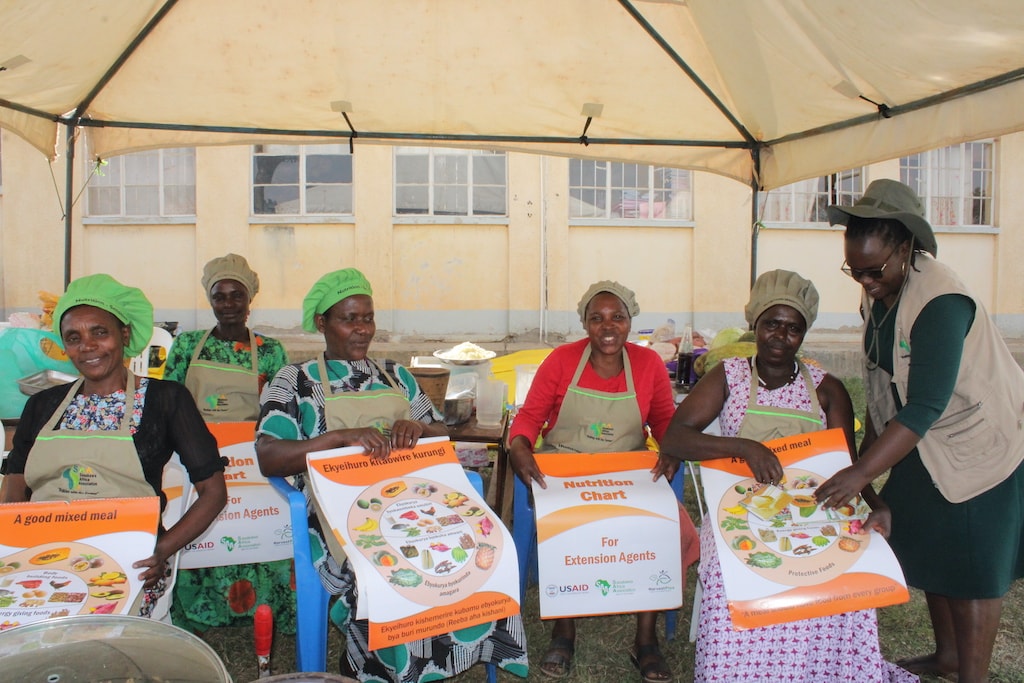
Activities
Activities
SAA Empowers Ugandan Families with Life-Changing Nutrition Training
Between June 22 and June 28, 2023, SAA hosted a nutrition extravaganza spanning Uganda’s Otuke, Kole, Rakai, and Isingiro districts. About 200 participants in each district, comprising vibrant mix of farmers, locals, and officials, came together for epic showcases of diverse farm treasures and nourishing meals.
A dazzling display of fresh food items from across the different food groups revealed the health benefits of dietary diversity.
More than a food festival, the Nutrition Daysprovided opportunities for knowledge exchange, networking, and community collaboration. Live cooking demonstrations highlighted the integration of local produce into daily meals, with an emphasis on hygiene.
The participants did not leave empty-handed either; they each carried home Information, Education, and Communication (IEC) material covering everything from nutrition to modern agricultural practices, agro-processing, post-harvest management, and power gender integration.
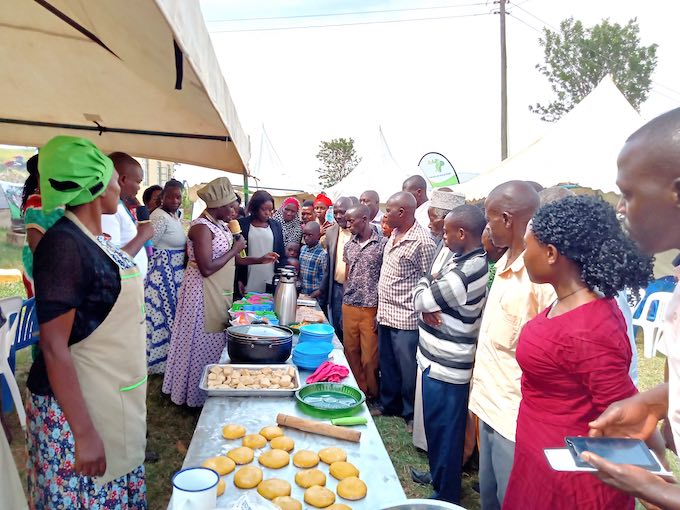
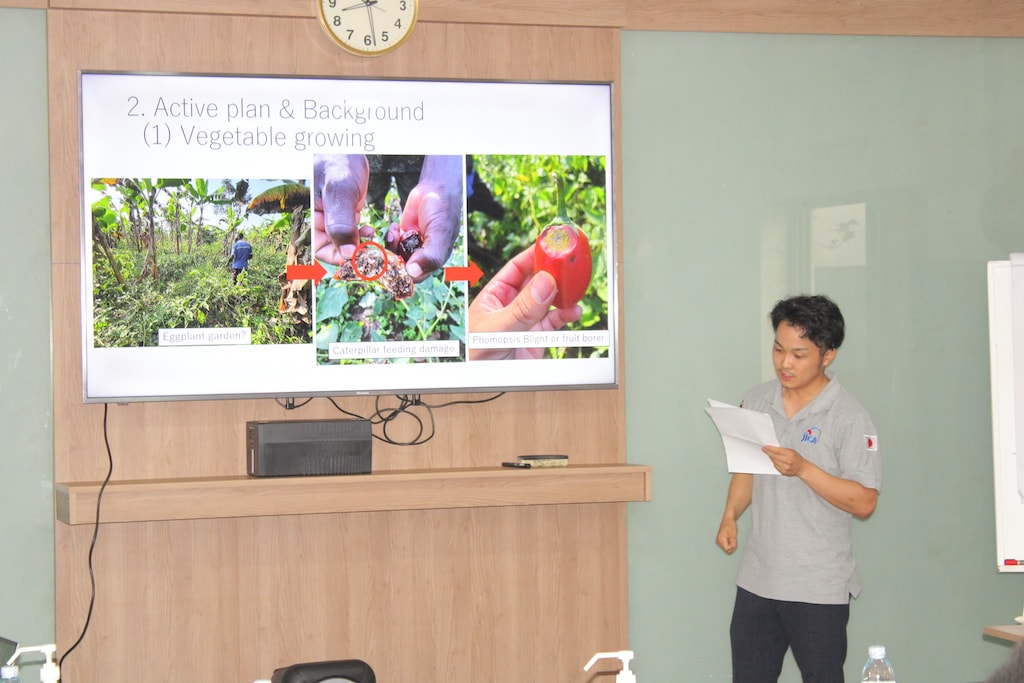
Activities
Activities
Japanese Volunteer Sets Out on a Knowledge-Exchange Mission in Ugandan Village
In June 2023, Nobutaka Nakamura, a Japan Overseas Cooperation (JOCV) Volunteer specializing in vegetable and rice production, arrived in Uganda’s Nakaseke Climate Smart village looking to transform the community’s agricultural prospects.
Leveraging his expertise in Japanese agriculture, Mr. Nakamura is determined to amplify the local farming enterprise, through tailor-made strategies that respond to the unique needs of farmers in the region.
Mr. Nakamura’s presence in Uganda is also part of a cultural exchange between Japan and Uganda, aimed at fostering mutual learning and understanding.
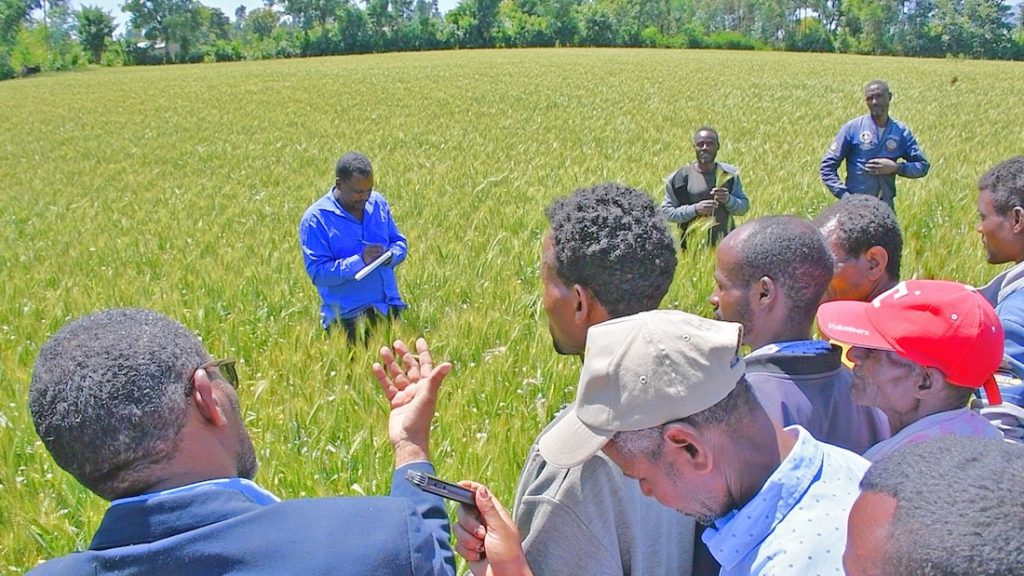
Activities
Activities
Capacity building on seed production enhances quality wheat seed availability in Ethiopia
By the end of 2023, 145 farmers (32 women) in Ethiopia will have enhanced their skills and production capacity in wheat seed cultivation. This group is part of 856 farmers (377 women), who were trained by SAA alongside 181 Extension Agents (35 women) on the intricacies of quality seed production and the inspection procedures and regulations in Ethiopia.
The cohort was taught on ways to maintain varietal purity, appropriate moisture content and weight, and disease and pest control. SAA then facilitated the establishment of four seed production clusters by 145 growers on 41.35 ha of land. Specifically, the project covered:
- Taguba Meskel and Kokit Kebeles in Meket district, where 43 farmers (including 8 women) cultivated seeds on 10.5 ha, while 22 farmers (5 women) utilized 7.1 ha;
- Kerekicho Kebele of Angacha district, where 60 farmers (16 women) worked on 13.75 ha, and
- Erba Buliyo Kebele of Ana Sora district, where 20 farmers (3 women) cultivated 10 ha.
Anticipating an average yield of 35 quintals per ha, the projected quantity of wheat seed production stands at 144.7 tons. Based on past market trends and future projections, the producers are poised to earn from their produce, contributing to the economic stability and food security of the region.
Across the production period, seed regulatory authorities and unions have been actively engaged in field inspections, ensuring that the seed production and certification laws are adhered to. The farmers are assured of a market for their produce through market linkages fostered by SAA with relevant unions to streamline seed marketing.
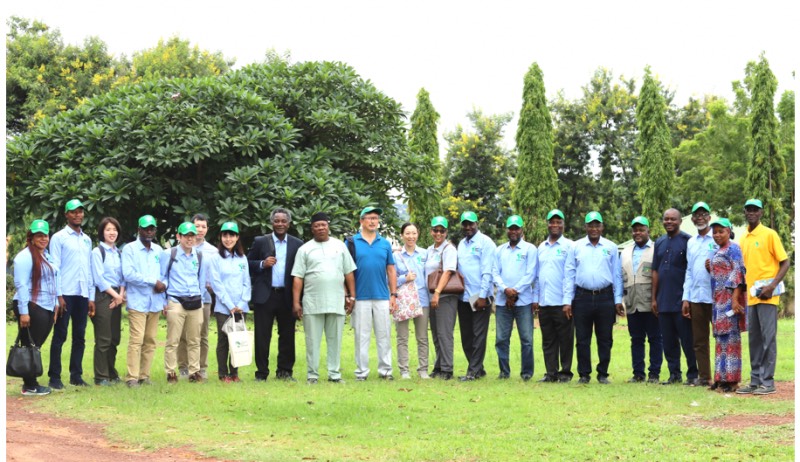
Activities
Activities
SAA Nigeria Sets in Motion Plans for Two Commodity Aggregation Centers
On August 7, 2023, the Sasakawa Africa Association (SAA) renewed its dedication to agricultural transformation in Nigeria, focusing on uplifting smallholder farmers’ livelihoods.
SAA-Nigeria’s Country Director, Dr. Godwin Atser, and Tokyo headquarters officials visited Nasarawa Agricultural Development Program (NADP) to discuss the establishment of two commodity aggregation centers in Lafia Local Government Area.
These centers, funded by Japan’s Ministry of Foreign Affairs, will offer modern agribusiness facilities, including rice processing machines, aiming to enhance market access, rice processing, community savings, and introduce climate-resilient rice cultivation practices. Local leaders expressed gratitude, with traditional titles bestowed on SAA team members.
For the full story click here
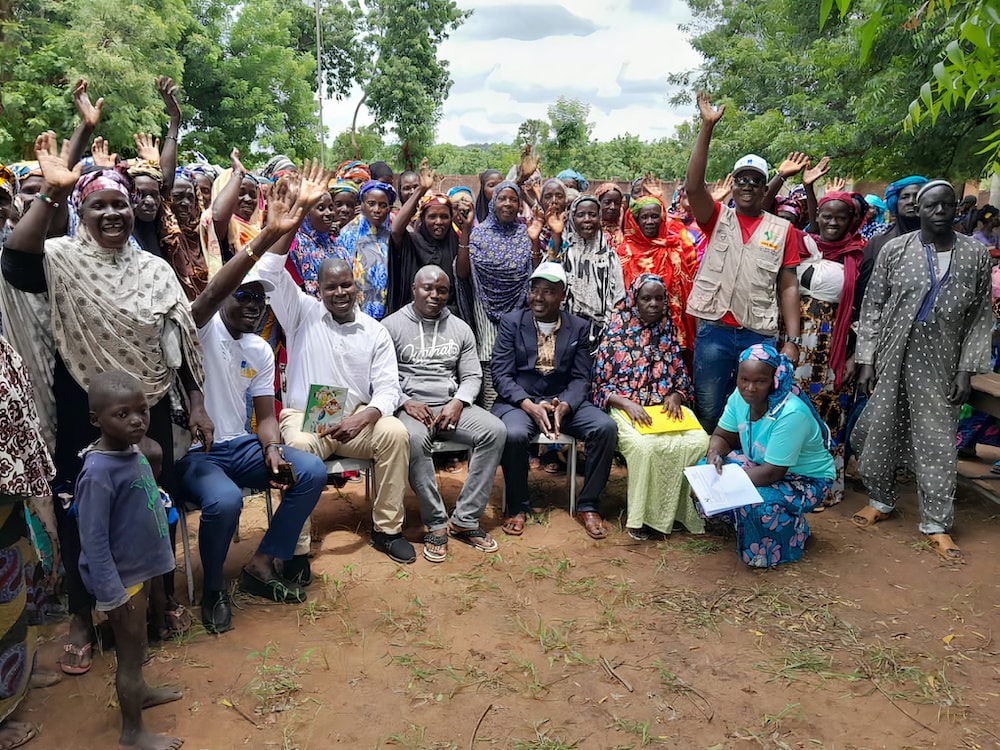
Activities
Activities
SAA Mali Successfully Connects Malian Cooperatives to a Lender
Four out of five Community Saving for Investing in Agribusiness (CSIA) groups trained by SAA-Mali have applied and received development loans from the Nyèsigiso microfinance institution.
Fifty representatives of the five cooperatives drawn from the Siraninkoto, Doumbadjila, Heremakono, Diawarabougou, and Badalabougou villages received financial training through an initiative organized by SAA and Nyèsigiso. The training covered the CSIA concept; the essence and objectives of savings; and savings plans, amongst other topics.
Nyèsigiso’s representatives provided detailed insights on the various loan offerings available to their clientele. They highlighted specific schemes like the “agricultural credit for rural women” and the “agricultural equipment investment credit.”
Additionally, they outlined the essential criteria for loan eligibility, including the requirement for a deposit of at least 13% of the desired loan amount. The institution offers loans at annual interest rates of 18%.
EVENTS
Activities
SAA Takes Centerstage Among Visionaries Leaders at Africa Food System Forum
From September 5 – 8, 2023, SAA participated in the 13th Africa Food System Forum in Dar es Salaam, Tanzania, joining key African leaders, policymakers, and innovators. The theme of the event was “Recover, Regenerate, Act: Africa’s Solutions to Food Systems Transformation,” and it focused on innovative agriculture and food system strategies, climate change mitigation, and the empowerment of youth and women. The summit also emphasized the urgent need for collective action and innovative solutions to transform Africa’s food systems. SAA’s delegation included Honorary Advisor Prof Ruth Oniang’o, President Makoto Kitanaka, and Board Member Prof Keiichi Shirato, amongst others. Dr. Kitanaka actively contributed to discussions during a specialized breakfast session organized by Technologies for African Agriculture (TAAT), the International Institute of Tropical Agronomy (IITA), and Excellence in Agronomy. Furthermore, SAA established a booth at the forum, expanding its network and exploring potential partnerships. Interactions at the forum reaffirmed SAA’s commitment to regenerative, nutrition-sensitive, and market-oriented agriculture as crucial for sustainable and resilient food systems in Africa.
Activities
SAA Takes Centerstage Among Visionaries Leaders at Africa Food System Forum
From September 5 – 8, 2023, SAA participated in the 13th Africa Food System Forum in Dar es Salaam, Tanzania, joining key African leaders, policymakers, and innovators. The theme of the event was “Recover, Regenerate, Act: Africa’s Solutions to Food Systems Transformation,” and it focused on innovative agriculture and food system strategies, climate change mitigation, and the empowerment of youth and women. The summit also emphasized the urgent need for collective action and innovative solutions to transform Africa’s food systems. SAA’s delegation included Honorary Advisor Prof Ruth Oniang’o, President Makoto Kitanaka, and Board Member Prof Keiichi Shirato, amongst others. Dr. Kitanaka actively contributed to discussions during a specialized breakfast session organized by Technologies for African Agriculture (TAAT), the International Institute of Tropical Agronomy (IITA), and Excellence in Agronomy. Furthermore, SAA established a booth at the forum, expanding its network and exploring potential partnerships. Interactions at the forum reaffirmed SAA’s commitment to regenerative, nutrition-sensitive, and market-oriented agriculture as crucial for sustainable and resilient food systems in Africa.
Events
SAA Influence Prominent at 4th All Africa Postharvest Congress & Exhibition
On September 20, 2023, SAA hosted a panel at the 4th All Africa Postharvest Congress and Exhibition (AAPHCE) in Addis Ababa, Ethiopia, discussing the importance of capacity development in sustainable postharvest management. The session emphasized enhancing the skills of postharvest actors and using digital agricultural extension to benefit smallholder farmers in Africa. Representatives from the Dutch embassy in Ethiopia, Wageningen University, and SAA participated in the discussion. During the conference with the theme “Sustainable Postharvest Management: Boosting Intra-African Agricultural Trade and Enhancing Food and Nutrition Security,” SAA’s Director of Strategic Partnerships, Dr. Mel Oluoch, delivered a keynote speech on SAA’s strategy and postharvest initiatives. SAA staff, including Ms. Jacqueline Namusalisi from Uganda and Mr. Yahaya Yahuza from Nigeria, also made technical presentations, and SAA maintained a booth for interaction and increased organizational visibility.
Events
SAA Influence Prominent at 4th All Africa Postharvest Congress & Exhibition
On September 20, 2023, SAA hosted a panel at the 4th All Africa Postharvest Congress and Exhibition (AAPHCE) in Addis Ababa, Ethiopia, discussing the importance of capacity development in sustainable postharvest management. The session emphasized enhancing the skills of postharvest actors and using digital agricultural extension to benefit smallholder farmers in Africa. Representatives from the Dutch embassy in Ethiopia, Wageningen University, and SAA participated in the discussion. During the conference with the theme “Sustainable Postharvest Management: Boosting Intra-African Agricultural Trade and Enhancing Food and Nutrition Security,” SAA’s Director of Strategic Partnerships, Dr. Mel Oluoch, delivered a keynote speech on SAA’s strategy and postharvest initiatives. SAA staff, including Ms. Jacqueline Namusalisi from Uganda and Mr. Yahaya Yahuza from Nigeria, also made technical presentations, and SAA maintained a booth for interaction and increased organizational visibility.
